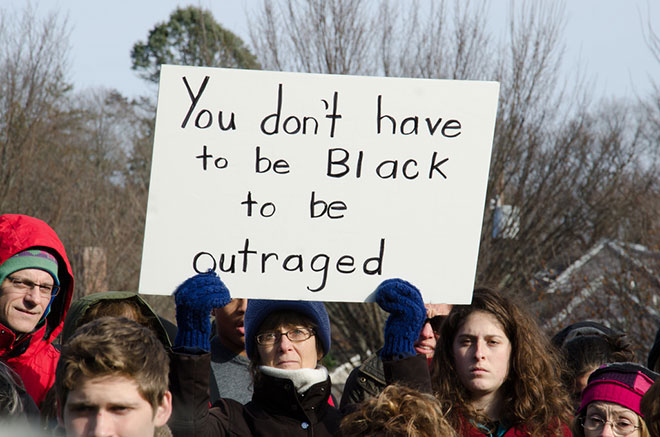As happens every time that I read something from Black Girl Dangerous, I recently found myself snapping, nodding, and yelling out “YES!” while reading a piece from Mia McKenzie.
Her article “No More ‘Allies’” made me profoundly uncomfortable – which is a good thing.
I was uncomfortable because it was a call to reflection about my own “ally” identifications and my own work.
To start, read her piece. Seriously. It is awesome.
Beyond that, though, it’s time for those of us who fashion ourselves “allies” or as “currently operating in solidarity with” to have a conversation.
More and more, I am seeing precisely what McKenzie is describing – people of identity privilege who are identifying as “allies” almost as if it is a core part of their identity.
What’s worse, I keep seeing people respond to criticism about their oppressive language or problematic humor with, “But I’m an ally!”
For instance, I recently saw an acquaintance (who notably identifies as Straight) post a pretty problematic joke about Gay men on Twitter.
Aside from expressing my discontent in a tweet, I reached out to her in a private message to explain why I took issue with her joke.
Her response, though, was to say, “Jamie, you know that I’m an LGBT ally! I speak out for Gay rights all the time! This was clearly just a joke.”
And therein lies the problem.
The identification of “ally” was so prominent in this person’s mind that she couldn’t even hear criticism of how her actions were out of alignment with her professed desire to be an “ally!”
So “allies,” let’s talk.
